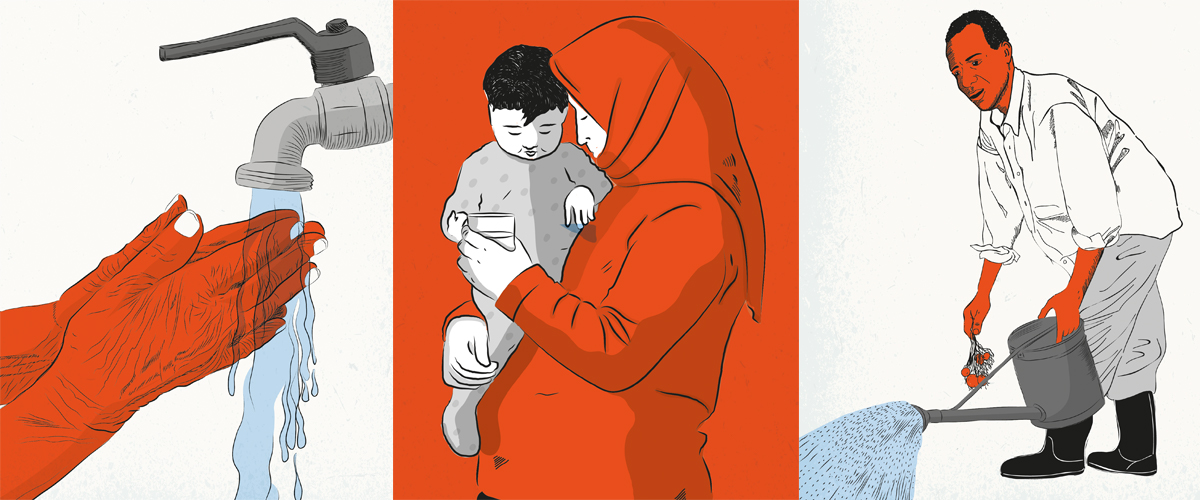
Illustrations for the promotional materials of the 2019 World Water Day Campaign “Leaving no one behind.” Right to left: Water for all older people, Water for all refugees, Water for all rural people. Images: UN Water.
The theme this year is “Leaving no one behind,” which is the central promise of the 2030 Agenda for Sustainable Development: as sustainable development progresses, everyone must benefit.
Key facts & Figures about water
· 2.1 billion people live without safe water at home.
· One in four primary schools have no drinking water service, with pupils using unprotected sources or going thirsty.
· More than 700 children under five years of age die every day from diarrhoea linked to unsafe water and poor sanitation.
· Globally, 80% of the people who have to use unsafe and unprotected water sources live in rural areas.
· Women and girls are responsible for water collection in eight out of ten households with water off-premises.
· For the 68.5 million people who have been forced to flee their homes, accessing safe water services is highly problematic.
· Around 159 million people collect their drinking water from surface water, such as ponds and streams.
· Around 4 billion people – nearly two-thirds of the world’s population – experience severe water scarcity during at least one month of the year.
(Source: UN)

